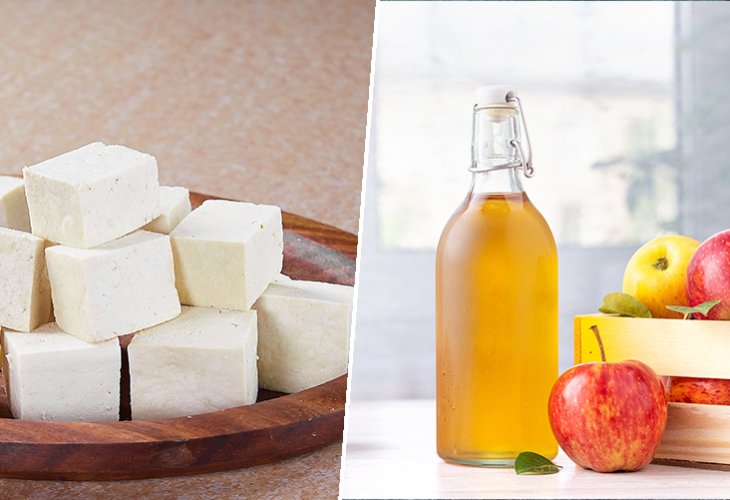Beyond the Ordinary: Can Apple Cider Vinegar and Cheese Melt Belly Fat?
An American doctor proposes a peculiar yet innovative way to battle belly fat, claiming it's all backed by research. The secret? Just some apple cider vinegar and 30 grams of cheese.
 (Photo: shutterstock)
(Photo: shutterstock)About three months ago, an American doctor named Becky Gillespie wrote an article on an intriguing method for reducing belly fat. While Gillespie discussed the use of apple cider vinegar, which isn't new, she added an unusual twist to the method: eating 30 grams of cheese before bed. Does it really work? Is there actually research supporting her method? To answer these questions, we need to understand what belly fat really is.
Fat in our body is divided into two types:
Subcutaneous fat – This is the kind you can pinch between two fingers. While it is preferable to reduce subcutaneous fat, it isn't necessarily harmful to our health.
Belly fat – Visceral fat located deep in the abdomen, pushing the belly outward, thus the name "belly fat." This fat accumulates in the abdomen, is metabolically active, and increases the release of inflammatory substances and free fatty acids, which leads to insulin resistance and other health problems. In fact, when scientists surgically removed 18% of abdominal fat from obese mice, their insulin sensitivity improved and the onset of diabetes was significantly delayed.
Who is it resisting exactly?
When this resistance exists, insulin cannot efficiently move sugar from the blood into the cells. This makes weight loss difficult as high blood sugar and insulin levels block fat loss and make us feel tired and hungry. Interestingly, if insulin resistance isn't addressed, it creates a vicious cycle where resistance encourages more belly fat, and additional belly fat worsens insulin resistance.
According to Gillespie, there's a way to break this frustrating cycle:
- Time-restricted early eating before bedtime
- Apple cider vinegar
- 30 grams of cheese.
No Dinner Plans?
"Time-restricted early eating" is essentially starting to consume food as early as possible during the day and finishing early, preferably around 4:00 PM. This is expected to improve insulin sensitivity because it reduces the workload on the hormone. According to the doctor, the equation is simple: when there's no food, there's no insulin spike. Additionally, apple cider vinegar has been proven to help control blood sugar levels, improve insulin sensitivity, and reduce belly fat.
So What's the Problem?
The issues with this method are, of course, the unpleasant taste of apple cider vinegar and the early cessation of eating. The doctor claims that knowing you can eat cheese before bed will psychologically soothe hunger (really?) and in addition, eating the cheese with the vinegar before bed will offset its bad taste.
And What Does the Research Say?
This strategy of combining apple cider vinegar and cheese was studied in 2007. The research showed that consuming 30 ml or two tablespoons of apple cider vinegar before bed helped control morning blood sugar levels in diabetics. Interestingly, participants got these results despite consuming 30 grams of cheese with the vinegar. The cheese was used to make the vinegar more palatable. However, even the control group that only ate cheese and drank water showed a (smaller) reduction in glucose levels.
This caused researchers to wonder: is there something in cheese that positively affects fasting glucose levels?
How to Stop Eating So Early?
To overcome the evening eating habit, the doctor suggests gradually restructuring mealtime. Start by stopping eating about 3 hours before sleep, and gradually work towards having your last meal at 4:00 PM.
Not a Fan of Apple Cider Vinegar?
For those who simply can't stand the taste of apple cider vinegar even combined with cheese, the doctor suggests using supplements but cautions that she is unaware of studies guaranteeing effectiveness.
And If You're Lactose Intolerant?
For people sensitive to dairy products, the doctor suggests eating 30 grams of chicken or turkey instead of the cheese, due to a similar nutritional composition in terms of proteins.

